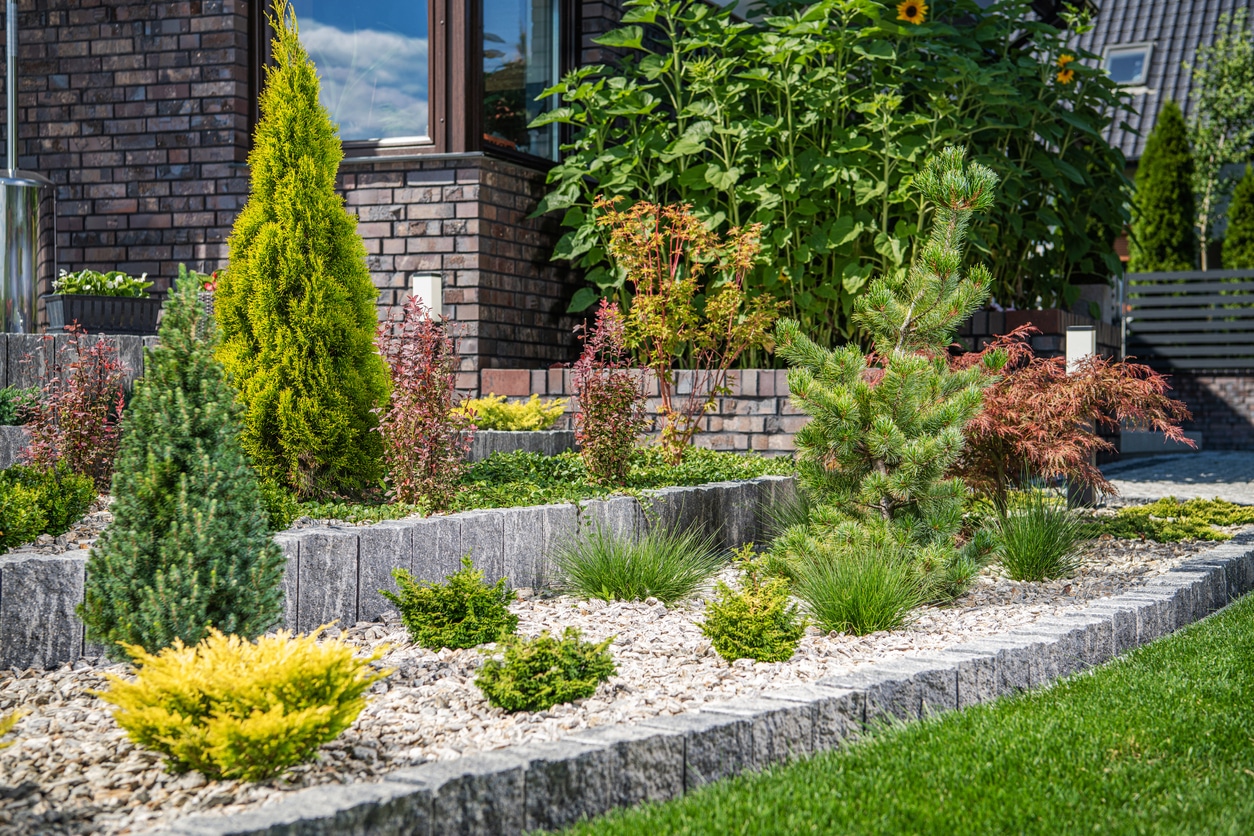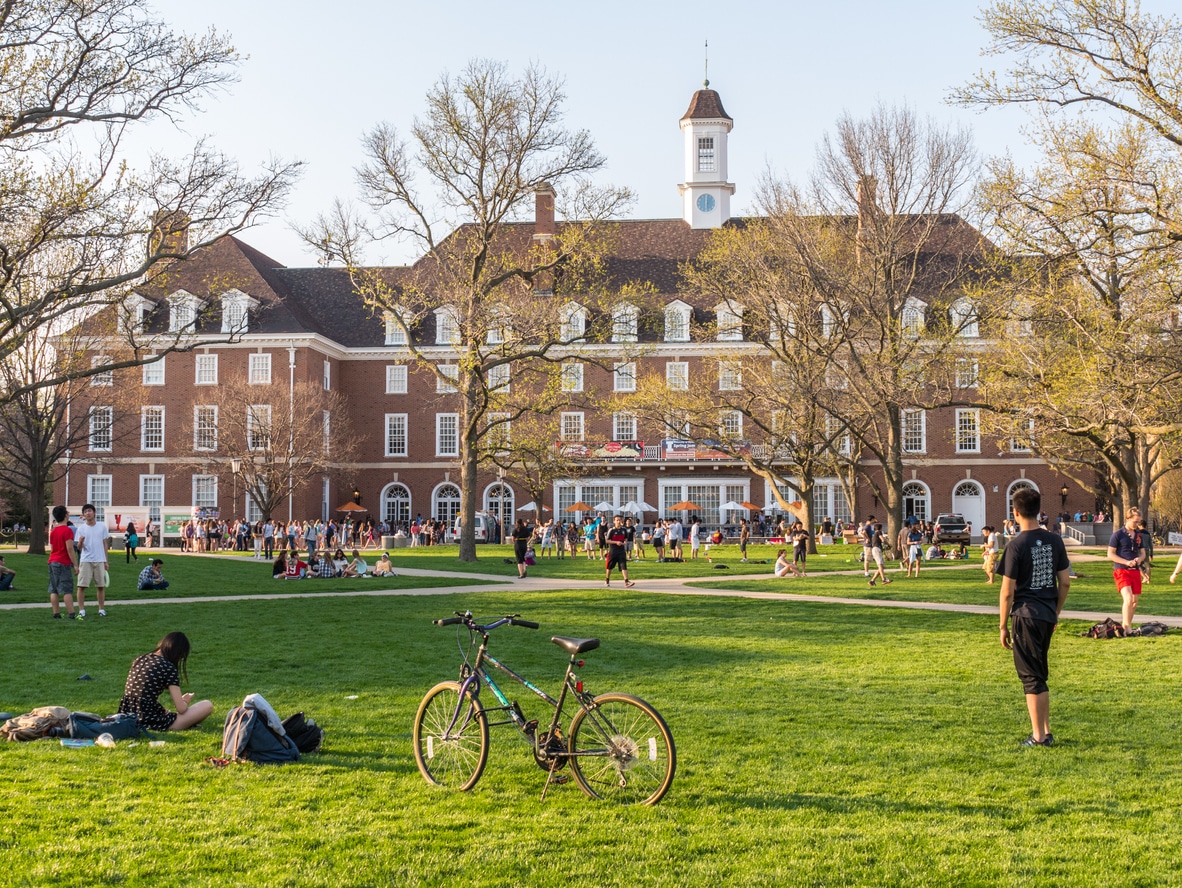
Pros and Cons of Having Trees in Your Garden

A well-kept, mature garden can boost the appeal of any home. For your own sense of enjoyment and relaxation, private outdoor space can work wonders since connecting to nature is known to be excellent for combatting stress, as well as improving mental health and wellbeing. If you’re thinking of selling your home, a gorgeous garden with trees, flowers and more not only makes your property more attractive to sellers, it can add up to 20% of the value.
Trees are nature’s gentle giants and, frankly, we could always do with a few more in the world. Interestingly, only 10% of England is woodland, and woodland only represents 13% of the total land area in the UK. When it comes to gardens, you would think any mature garden would surely feature at least one tree, right? Well, in actual fact, while there are lots of individuals planting trees, and tree-planting projects in progress all over the globe, opinions are divided over whether having trees in a garden is actually a good idea.
If you’re wondering what on earth could possibly be the problem with having one or more beautiful trees in your garden, let’s take a moment to consider the pros and cons. We’ll start with some potentially serious concerns:
Root Growth and the Damage This Can Cause
Did you know the underground root system of a tree tends to mirror the canopy above? More than that, tree roots can spread three times or more the width of the canopy and the height of the tree – and this can have possible consequences for nearby buildings you shouldn’t underestimate.
Not all trees near buildings cause damage, but in some cases – and particularly if the subsoil consists of shrinkable clay – structural movement, subsidence and blocked drains can be the result. Roots can penetrate your home’s foundations, making them unstable and causing cracks in walls and ceilings, sloping floors and misaligned doors and windows. Some trees are thirstier than others; suffice to say willow, poplar, oak and elm trees should never be planted close to the house.
If you suspect structural damage, dampness or cracking may have occurred, ask a surveyor to carry out a professional building survey or specific defect report to “confirm any defects present and consider the most probable cause based on the inspection and the likely consequences of non-repair.”
A Home for Unwelcome Pests
Of course, trees are a natural habitat for a wide variety of animal species, and that’s as it should be. However, if the wildlife in question is pests. such as rodents, woodworm and, in many areas of the world (though not the UK), termites, the situation is much less appealing. Rotting wood in old tree stumps is more likely to attract pests, but perfectly healthy trees can do this too.
Termites are considered to be one of the most destructive pests in the world. Sometimes called ‘white ants’, they are actually more closely related to cockroaches. They feed on plant matter and timber so are able to destroy wooden structures, causing significant damage to buildings. As for rats and mice, most people don’t want them anywhere near the house. They’re a health risk and are known to spread more than 35 diseases including salmonella, toxoplasmosis, plague and hantavirus. And, did you know rats can climb into open windows and vents unnoticed via trees close to the house? It doesn’t bear thinking about!
What Are the Positives of Trees in Your Garden?
Okay, we’ve established planting trees too close to the home can lead to an increased risk of pest infestation in the house and the foundations becoming damaged. However, as well as being nature’s own eco-friendly asset in your garden, let’s not forget there are many good reasons why trees in the garden can be a wonderful thing. With careful maintenance to avoid the risks mentioned above, we can and should enjoy our giant natural friends.
Trees Provide Privacy
One of the main advantages of trees in the garden is the privacy they can provide. Foliage can block sightlines from public into private spaces, whether this means no one can see into your garden or the interior of the house. Protected from prying eyes, your home and garden should be a carefree environment in which you feel comfortable. Screening from the public can also act as a burglar deterrent, since potential criminals won’t be able to see what’s inside to steal. However, at night, trees can provide shelter for criminals to hide behind, so installing good outside lighting (ideally with PIR motion sensors) is highly recommended.
Trees Offer Shade
The best garden designs will produce a good balance of light and shade. Shade can be achieved in many ways such as by installing awnings or sun sails, and putting up parasols or gazebos. While your garden aspect will largely determine the amount of natural light received – west and south-facing gardens tend to be sunnier than east and north-facing gardens – any trees in the garden are natural providers of shade and sun protection.
Garden occupants can enjoy dappled sunlight coming through the natural movement of the foliage above, which is both soothing and enchanting. What’s more, tree shade can be useful to shield sun-intolerant plants from too much light. Make sure you plan your landscape design to place any trees in the right spot.
Trees Are the Lungs of the Earth
Finally, the benefits of trees go far beyond the pleasant environment they produce in our domestic gardens. They play a key role in ecosystems, in our planet’s atmosphere, water systems and weather patterns, too. Even in a garden, trees are part of the overall ecosystem.
Once planted, they act as a source of shelter and food for animals and insects. Different trees attract different types of wildlife. The best choice of tree for attracting bees and birds to your garden is to plant rowans and crabapple trees. A silver birch is a magnet for insects such as ladybirds, moths, as well as birds including woodpeckers that commonly nest in its trunk, and greenfinches who love birch seed. The trees you can count on to sustain the most wildlife are native species like willow, oak and birch.
2 Comments
-
Sir Kevin Parr Bt
Tree planting I have over 50 trees in my woodland garden and say 200 as hedge one side to keep wind away . Without trees we can breath .Trees create a protected garden.Give an old garden feel to a new one and should be law you have to plant trees in parks pavements and gardens . England was stripped of millions of hard wood trees in 1798 . 180 oak trees to make a poop deck on a naval vessel to fight Napoleons navy. We need to replace now same number as taken then. Rot to the down side of growing lungs for us to breath air from .Without trees cancer takes more and more each year from us peoples .There can never be a down side to planting trees they won the earth we stand on.



Regina
Plants are also a physical barrier that deters crimes. Consider replacing smooth shrubs with thorny bushes that may scratch anyone who attempts to climb on top of them. However, just bushes may not be enough to deter a criminal from committing theft or burglary. So, don’t forget other security measures like security cameras, alarms, and fences.